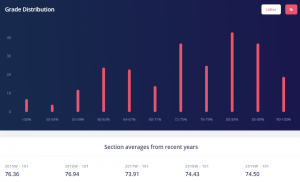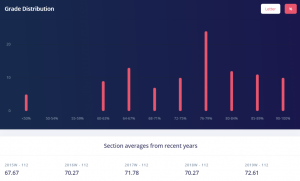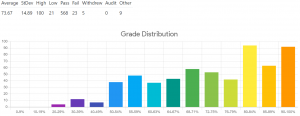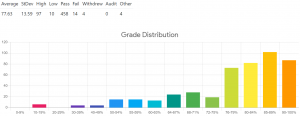Have you ever looked up to the sky and wondered how birds are able to fly? Or maybe looked out to the ocean wondering how aquatic animals are adapted to move effortlessly under water. BIOL 325 holds the answers to these mysteries as it pushes us to view the biological world through a biomechanical lens. This course teaches the underlying mechanics of swimming, flying and terrestrial locomotion.
format of the course
Due to the COVID-19 pandemic, my experiences with this course were all in a virtual setting. This course was partially asynchronous, as all the live lectures were recorded and available to be revisited at anytime. The midterm and final evaluations were synchronous, however the teaching team allowed for students in different time zones to write their exams at a better-suited time. There are also weekly homeworks in the form of canvas quizzes, which were not too tricky, but also not easy. Unfortunately, the homeworks often had typos or grading errors, but the TA in charge of creating these quizzes was very upfront and honest about these mistakes. Apart from a bit of anxiety, the typos and grading errors were usually corrected, resulting in grading of the homework being fair overall.
Even though it is a biology-classified course, it would be more appropriate to think of it as a physics course accompanied by biological examples. As such, the course is very math intensive; however one would not need any mathematical knowledge beyond basic algebra and trigonometry to be successful in this course.
GPA 🙂 or 🙁
There is alot of material in this course, but I would classify this as a slightly GPA boosting course. Even though the homework (worth 20% of the mark) can take a long time to finish, all the answers are basically in the slides and it is not unreasonable to get full marks for this portion of the grade (lowest two homework gets dropped!). The midterms were closed book, invigilated and worth 20% each. The first midterm was extremely hard and time-constrained. This was due to the fact that it was the first time the teaching team had administered an online exam. Fortunately, they recognized this and implemented a policy where they would only take the score of the highest midterm. The second midterm was much easier, and I suspect this was the midterm score most people kept. The final exam was the same difficulty and format as the second midterm. The average for my class ended up being pretty high; 78!

Credits: ubcgrades.com
VERDICT? TO TAKE OR NOT TO TAKE
I would take this course if you’re a physics/math-oriented individual. Personally, this was one of the favorite biology classes that I have taken. One of the main reasons being that the grading is extremely fair, owing to the fact the answers are mostly quantitative and not prone to subjectivity. If you do end up taking this course, I guarantee that you will amusingly start viewing the world more like a biomechanic (eg. I can’t stop visualizing the lift and drag vectors of an airplane wings whenever I see a plane fly overhead).



